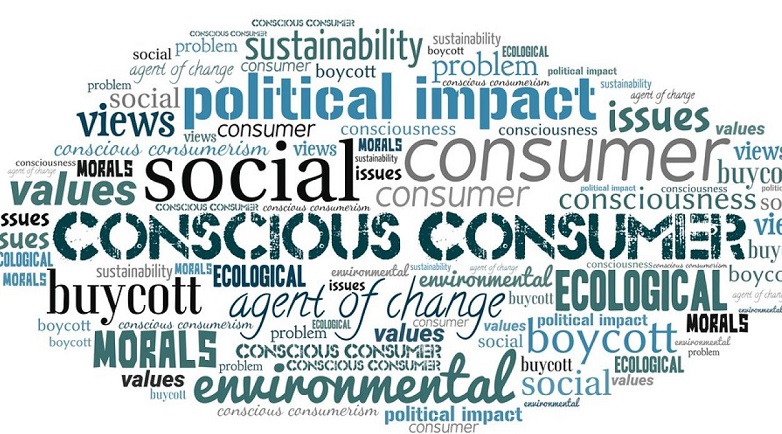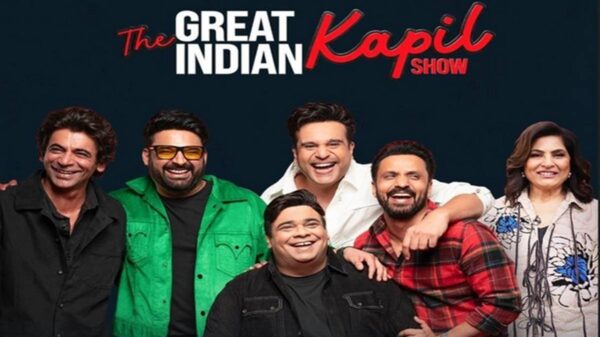KARACHI: In recent history, large populations have migrated from Pakistan in search of a better livelihood, bigger financial prospects, and a good living. Despite visible economic changes and inflation, it is hard for people to understand why their cost of living keeps on rising. How to have a better life is not that complicated to understand.
People never tend to stop and think about the damage to their sense of security and economics as they continue chasing other people’s lifestyles. What we consume today has become expensive as compared to a few years back. A simple phenomenon that needs to be understood is called ‘Consumerism’– the price we pay.

Channeling our constant ‘desire’ is vital today. Our ‘wants’ is what we desire versus ‘our needs’ is what we cannot do without. We are surrounded by a culture of constant consumption that leaves us feeling fascinated, but exhausted. This is the cycle that eventually leads to ‘overconsumption’, which we call Consumerism.
We may need to re-think the ways we spend. Our behavior to overspend and overcome determines whether we are living within our means or living beyond them. ‘Having more is great but wanting less is much better’. I believe: Less is More. More freedom, more peace of mind, and more mindfulness if you spend less. If we own less, it brings a sense of peace to our lives. By ensuring our lifestyle stays within our control, we start to discover wonderful new habits that emerge in our lives. The pursuit of ‘ greater significance’ is something worth a try. Breaking free from ‘excessive consumerism’ is an essential step for a simplified life and a satisfied mind.
At the heart of the matter is something called ‘Consumerism’. When we crave more and more in life, we forget the damage cost that we incur after recklessly spending to attain it. Opportunity loss occurs when we do not foresee the after-effects of heavy spending, accumulating short-term debt that becomes a long-term curse. For example, the pursuit of happiness today is to go eat out at fast food restaurants every second, feeding our families junk food. Here, we do not realize the overall rise in obesity in our children, who grow up with abnormal needs to fulfill, leading complex lives and facing healthcare challenges like never imagined before.
Unhealthy food consumption has become a norm in a country like Pakistan, where we pay a general sales tax of 13% on every transaction we make in cash or by credit on food that is harmful to our lives and leaves us facing health issues. The culture of home-cooked meals is no more. The average child eats two out of three daily meals by ordering in through countless apps while defying to eat normal healthy food at home. The cost of the wallet today has tripled over the last decades, with consumers having to accumulate vast amounts of debt payments to process, much beyond what they earn and save.
Pakistan faces an immense challenge today. Our cost of living has risen substantially while our spending power has reduced due to the devaluation of the rupee against the dollar, double-digit inflation, higher consumer price index, and reduction in savings. We were never a nation that saves more than it spends. Our spending pattern is visible in our policy-making, our taxation system, and our overall attitude toward living excessive lives. Consumerism has affected people’s peace of mind and their capacity to lead healthier lives. The capacity to spend at will has been taken over by the desire to overspend, in a desperate attempt to win a rat race that has no end.
Materialism is everywhere. Look at the number of divorces taking place today over financial stress and mismanagement. Moral corruption has taken its root inside our family system, where it is all right to spend carelessly over retail buying despite the GST (general sales tax) at 13%. Before paying our bills while eating out, not many people notice that what we spend in a single day, is higher than we average family of four in Pakistan makes in weekly wages.
No one seems to look back and reflect anymore. It is the price of consumerism we pay every day without realizing how much money we are losing. Impulse buying may be the easiest relief to a person in the short run but paying credit card payments with annual percentage rates (APR) crossing over 50% per annum is the agony that hits much later. Today, Pakistan is facing a severe health emergency, a looming climate crisis, and a financial meltdown where people are unable to sustain monthly payments on food, water, electricity, and housing.
A simple guide to overcoming ‘consumerism’ is essential today. Here are a few guidelines:
- Admission: Admin that it is possible to overcome consumerism. Adopting a minimalistic lifestyle is a great step forward. Rejecting and overcoming consumerism is essential in today’s day and age and this may give you the motivation to take positive steps to improve your lifestyle. Victory begins here.
- Mentality: Changing your mentality is important. When we travel, for example, we only take what we require. We feel lighter, more flexible, easygoing, and free. Hence, we enjoy it more. We carry less and travel light. Adopt a ‘traveler’s mindset for life’. Only buy what you need for the journey of life.
- Embracing the ‘lighter lifestyle’: Imagine designing your home bedroom similar to a hotel bedroom- very specific and need-oriented rather than extravagantly clumsy. Consider the benefits of owning less by calculating the benefits of a ‘lighter lifestyle.
- Become a minimalist: Spend less. Save more. Benefits clearly articulated are easier to adapt and quickly understood. The best way to change your life is to actually make a comparative analysis of the benefits of having less debt versus more debt. There is much peace of mind in owning less than owning more.
- Higher Awareness: Read more. Be aware of the consumer-driven social media campaigns that indulge you in false dreams of grandeur. Stay real. The world makes us believe that the money you spend is your greatest contribution. Every day thousands of advertisements ask us to spend more and go buy. Hence, our average spending goes recklessly. It is important to remove your focus from such advertisements and calculate the cost of spending weekly and monthly funds on products. \
- Compare-down: As we look at others who have more, we start comparing our possessions to theirs and end up losing our own joy, happiness, and contentment. Here, we could break this trap when we ‘compare-down’- by noticing those who need more than us and have much fewer possessions than us. This way, we remain content and grateful.
- Lead by example: Show younger generations the simple joys of life. Go walk with them when you see a par close by and save up on fuel consumption. Get a simpler sandwich at a lesser price than enter a lavish restaurant to buy the same sandwich at twice the price.
- Realize: Know that your money is valuable only to the extent of how chose to spend it. Money can be used for great causes to help others in need. A lot of times you spend your money buying outfits you do not need. You can instead spend that money on getting food for street children who are hungry. It’s when and how you ‘Realize’ and put that into practice.
- Dream Big: Always have an objective to achieve in mind. If you dream big you will aspire to achieve it and maybe use your money carefully in the search for the attainment of that objective or goal. Dream bigger dreams for your money. For example: keep saving to get yourself your dream car instead of spending that money away. This way, you are bound to save that money instead of spending it away.
- Value for money: Understand the full cost of your purchase. The cost of an item is beyond the rack price. Always calculate the additional cost of time, energy, and focus related to that purchase. How you see the ‘usefulness’ of that product would actually determine the full cost of that product and the real value for money.
- Watch less TV: Television glamorizes everything to continue to exist. What is real is not shown as such. Companies spend billions on TV commercials as they ‘know’ you will buy whatever is shown as glamorous and glitzy. The television industry is built on assumptions and not facts. You do not have to be immune to what television wants to buy. Watch less TV to stay more stress-free and less prone to ‘fake reality’. Research has indicated that people who watch less TV today are leading less stressful lives.
- Gratitude: Practice being grateful as a daily habit. Focus on your blessings than your troubles.
- Generosity: Be generous. Helping others makes us feel better about ourselves and gives us more purpose in life, as some of us keep searching for the purpose that encourages, motivates, and indulges us to seek more satisfying life goals. Ambition without greed is always the best way forward.
In essence, Consumerism is a daily battle we must fight. We need to renew our commitment on a daily basis. When we reject consumerism every day, we become stronger every day. Expect the battle to be there each day and get up every morning on the positive. Trust in your gut feel and expect yourself to be positively motivated to change your life. As humans, we are designed to be resilient and change our lives for the better or for the worse. Chose better.
You are your own change-maker. Make yourself a priority and make your mental health a priority as well. Be able to say NO to excessive consumerism. Re-commit every morning.
You will defeat consumerism and lead a much better life.










